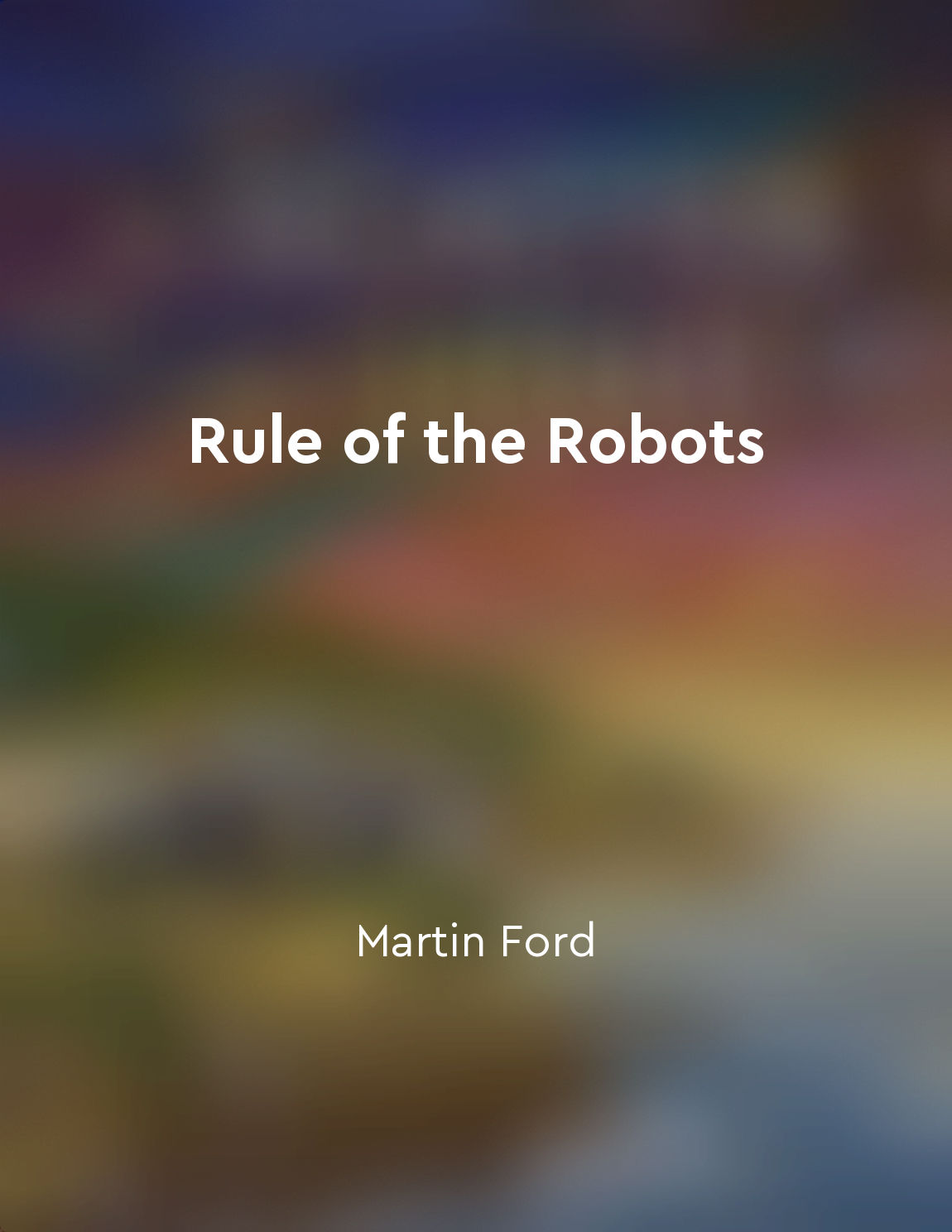Automation can lead to a loss of craftsmanship from "summary" of The Glass Cage by Nicholas Carr
In some cases, the more we rely on automation, the less skilled we become at the manual tasks it replaces. Take the example of airplane pilots. The increased automation in the cockpit has undoubtedly made flying safer and more efficient. However, pilots nowadays spend more time monitoring computer systems than actually flying the plane. As a result, their manual flying skills may not be as sharp as those of earlier generations who spent more time physically operating the controls. The same can be said for other professions as well. Automation in fields such as medicine and finance has made certain tasks easier and more accurate. Yet, as technology takes over these tasks, professionals may lose touch with the craft of their work. For instance, in the medical field, automated diagnostic tools can quickly analyze vast amounts of data and detect patterns that might elude human doctors. While this can lead to faster and more accurate diagnoses, it also means that doctors may rely more on technology and less on their own observations and instincts. Craftsmanship, by its very nature, requires time, effort, and attention to detail. When automation takes over repetitive tasks, it may reduce the opportunities for professionals to hone their craft and develop their skills. This can lead to a loss of the intuition, creativity, and expertise that are essential to mastering a craft. In the long run, this could have detrimental effects on the quality of work produced in various fields. Furthermore, automation can also lead to a loss of engagement and satisfaction for individuals in their work. When tasks become automated, workers may feel disconnected from the end result and lack a sense of accomplishment. This can result in decreased motivation and overall job satisfaction. As a result, individuals may become less invested in their work and may not strive for excellence in the same way they would if they were more actively involved in the process.- While automation can bring many benefits in terms of efficiency and accuracy, it is important to consider the potential drawbacks it may have on craftsmanship. As technology continues to advance, it is crucial for professionals to find a balance between automation and manual work to ensure that they maintain their skills, engagement, and satisfaction in their craft.
Similar Posts
Follow your own path instead of trying to imitate others
Imitation is a dangerous game. If you're just copying everyone else, you'll never be more than a pale imitation of the original...

Digital technologies shape our individual and collective identities
Digital technologies are not neutral. They are not simply tools that we use to carry out tasks and communicate with others. Rat...
Dependency on technology can erode selfreliance
The more we rely on technology to perform tasks that were once carried out by our own hands and minds, the more we risk losing ...

Education and training will be crucial in preparing for the future of work
In the rapidly evolving landscape of work, it is becoming increasingly clear that the skills demanded by employers are changing...

By valuing and compensating individual contributions to the digital economy, we can build a more equitable and sustainable future
In the digital economy, every individual's contributions are valuable and should be compensated accordingly. When we recognize ...
Use data analytics to make informed business decisions
Data analytics is a powerful tool that can help businesses make smarter decisions. By analyzing data, companies can gain valuab...
Ethical frameworks can guide automation development
Ethical frameworks play a crucial role in shaping the development of automation technologies. They serve as a set of guiding pr...
The workforce must develop new skills to remain relevant
In a world where machines are increasingly taking over routine tasks, the workforce must constantly evolve and develop new skil...
Reskilling the workforce is a necessity in the age of AI
In the era of AI, the way we work is being transformed at a rapid pace. As machines take on more tasks traditionally performed ...

